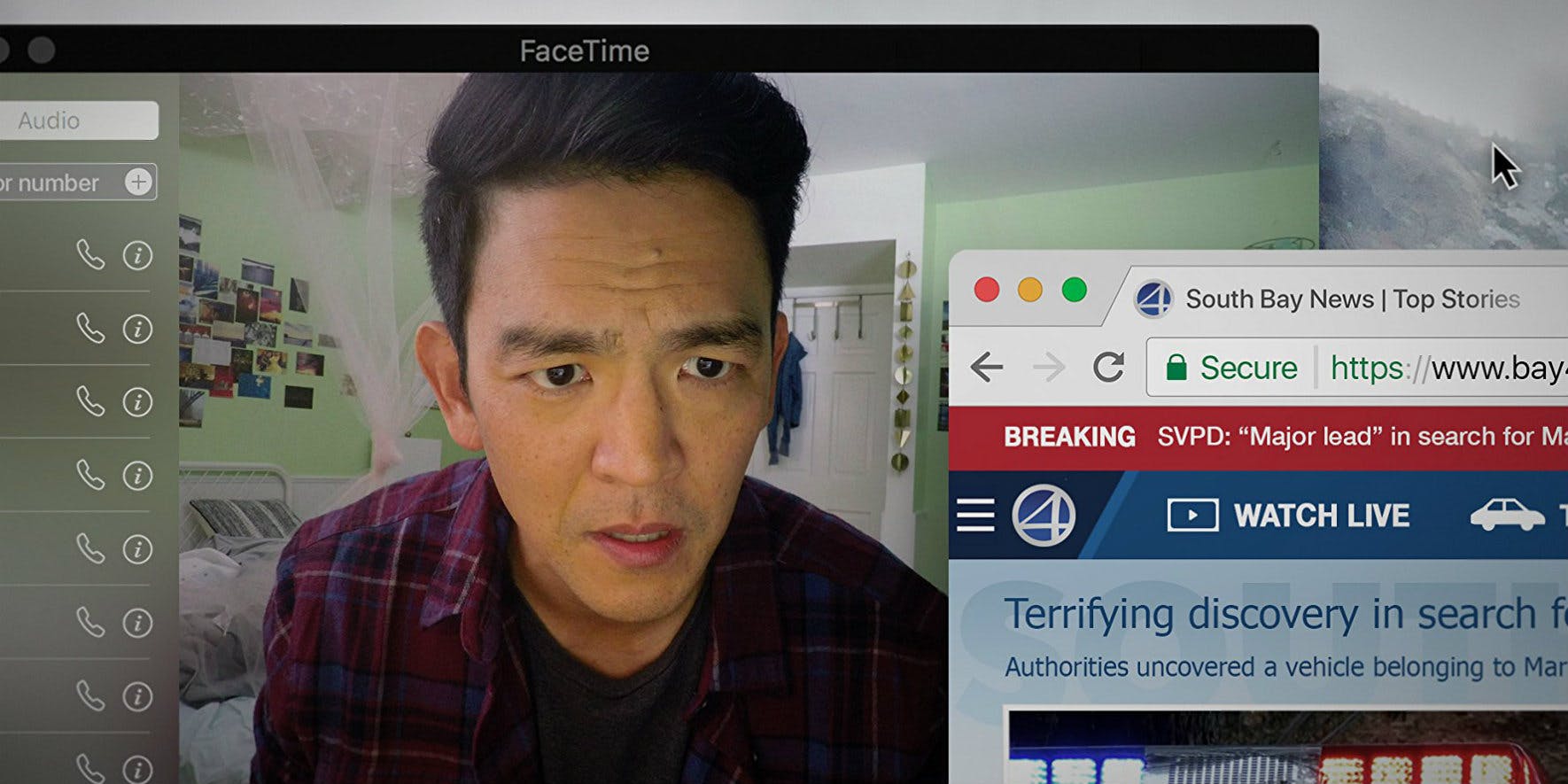A few years ago, a movie called Unfriended came out. Telling a horror story entirely through internet browsers, skype calls, and other cameras, it became patient zero for a new wave of films that will use this gimmick. The next iteration is Searching, a thriller about a missing daugther, completely evaluated through screens and online/social media. I don’t know how much longer this gimmick is going to go, but if movies as captivating as Searching keep coming out, then keep that Google browser open filmmakers!
The girl in question is Margot Kim (Michelle La), a sophomore in high school in California. After 3 missed calls late at night, her father David (John Cho) starts to panic when he can’t reach Margot. So he starts reaching out to people who might have been with her, including his brother Peter (Joseph Lee), Margot’s school, friends, family etc. He also gains access to her computer, and attempts to figure out where she could be. Desperate, David also files a missing persons report, getting a Detective Vick (Debra Messing) helping him from law enforcement to search for his daughter, who gets harder to find with each passing minute.
Aneesh Chaganty’s gimmick of the computer screens is what people will be talking about first when they mention Searching. In some ways, Searching sets a new bar for how powerful this technique can be. In a sequence similar to Up’s first 5 minutes, Searching show’s us what life was like growing up for Margot, David, and mom Pamela (Sara Sohn), but entirely though the family’s shared laptop. We see the high highs, and the low lows, sometimes with something as simple as pushing a calendar event later and later. It’s a powerfully executed sequence that uses all the tools the screen gimmick has to offer, and immediately gets us invested in the lives of the Kim family. The search for Margot is also very compelling, using things like spreadsheets, various internet websites, and photo history to have David search for what could have happened to his daughter. Having watched a few episodes of Catfish, Searching’s detective story is very similar, with David investigating cryptic usernames of people talking to his daughter. This method also helps underline one of the big themes of the story: that people craft their online personas to tell the story they want to tell, and that those stories all leave breadcrumbs in one way or another. David has to come to some harsh truths (sold by a great John Cho performance) about his daughter, and he also has to piece together from trace bits of info where she might be and what might have happened.
The detective story has to work for Searching to succeed, and for the most part, it does. The simple detective work David does on Margot recollects what you might do in this situation: logging into social media profiles, making lists of people she talked to, search all the popular apps on the computer to see where she spent most of her time. Maybe even buy that phone number search software to figure out who owns the phone of the last few calls sent to Margot’s phone. The detective helps give David more information he couldn’t know himself without law enforcement support, with only one or two exceptions. Searching has more than a few twists and turns in its story. The first couple are obvious because of a term called the law of the economy of characters, meaning characters the movie takes time to show us probably are involved somehow. Those early twists are also more inartfully executed, requiring leaks of police evidence and information David would have searched though at some point without stretching too hard. But as the story goes on, we get some truly great twists to the story that are sitting there but cleverly underwoven into Searching so they potentially have a blindsiding effect like they did for me. It leads to an epilogue that stretches the logic as to why David would possess these videos, but it emotionally wraps up the story nicely.
As fun as Searching was to watch on the big screen, it might be best to watch on a streaming service simply because of the gimmick it employs. Watching a movie about living on computers as you live on computers. The Meta jokes basically write themselves…

